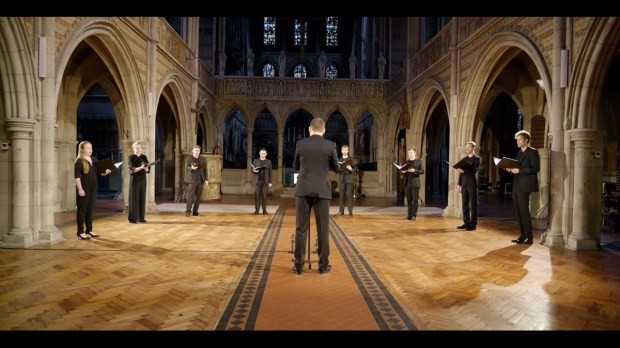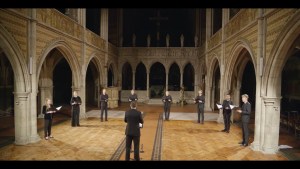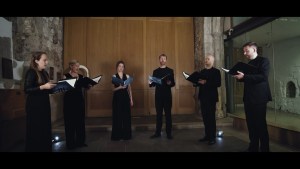World Youth Day 2023 will be held in Lisbon, Portugal, and to prepare, we’ve been listening to “Inviolata,” a 16th-century hymn from a rarely heard Portuguese composer/priest, Vicente Lusitano. The works of this often overlooked composer have been a focus of The Marian Consort,a sacred music group that routinely resurrects forgotten songs from the Catholic songbook.
The Marian Consort gives a wonderful treatment to the Renaissance-era hymn, flowing through its motet form with beauty and grace. The live recording is marked by crisp, high tones from their soprano and some exceptional low notes from their bass section. The group provided a translation of the Latin lyrics:
Inviolate, whole and chaste are you,
Mary: you are the shining gate of heaven.
O kind mother, dearest to Christ, accept our faithful hymns of praise.
To you our hearts and lips cry out: may our souls and bodies be pure.
Through your prayers’ sweet sounds grant us forgiveness for ever.
O kindly one! O Queen! O Mary! you alone remain inviolate.
While there is much that is unknown about the life of Vicente Lusitano, it is believed that he was of mixed race, with his mother hailing from an unspecified African nation. This is hinted at from his last name “Lusitano,” which is a Portuguese-language term for “Portuguese,” as well as other first-hand records that refer to him as “pardo,” a Portuguese term indicating he was of mixed European and non-European heritage. If true, this would make him one of if not the first composer of African heritage to be published.
We do know, however, that he was a Catholic priest while he was writing his hymns. While most composers were employed as such by the Church, there are no records of Lusitano holding the position of a composer, which suggests he wrote his music simply for the love of it, or perhaps in response to a calling. He is also remembered as a teacher, tutor, and theorist. Later in life, however, he converted to Calvinist Protestantism, and traveled to Germany where he took a wife. There are no records of Lusitano, or any compositions by him, after this event.



